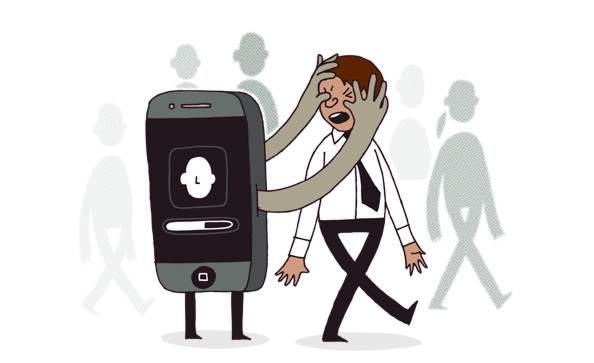 If you’ve traveled or lived in the UK then you may well have been filmed and recorded by one of Britain’s 4.2 million security cameras (and that’s the count as of 2009). That’s one per every 14 people.
If you’ve traveled or lived in the UK then you may well have been filmed and recorded by one of Britain’s 4.2 million security cameras (and that’s the count as of 2009). That’s one per every 14 people.
While it’s encouraging that the United States and other nations have not followed a similar dubious path, there are reports that facial recognition systems will soon be mobile, and in the hands of police departments across the nation.
[div class=attrib]From Slate:[end-div]
According to the Wall Street Journal, police departments across the nation will soon adopt handheld facial-recognition systems that will let them identify people with a snapshot. These new capabilities are made possible by BI2 Technologies, a Massachusetts company that has developed a small device that attaches to officers’ iPhones. The police departments who spoke to the Journal said they plan to use the device only when officers suspect criminal activity and have no other way to identify a person—for instance, when they stop a driver who isn’t carrying her license. Law enforcement officials also seemed wary about civil liberties concerns. Is snapping someone’s photo from five feet away considered a search? Courts haven’t decided the issue, but sheriffs who spoke to the paper say they plan to exercise caution.
Don’t believe it. Soon, face recognition will be ubiquitous. While the police may promise to tread lightly, the technology is likely to become so good, so quickly that officers will find themselves reaching for their cameras in all kinds of situations. The police will still likely use traditional ID technologies like fingerprinting—or even iris scanning—as these are generally more accurate than face-scanning, but face-scanning has an obvious advantage over fingerprints: It works from far away. Bunch of guys loitering on the corner? Scantily clad woman hanging around that run-down motel? Two dudes who look like they’re smoking a funny-looking cigarette? Why not snap them all just to make sure they’re on the up-and-up?
Sure, this isn’t a new worry. Early in 2001, police scanned the faces of people going to the Super Bowl, and officials rolled out the technology at Logan Airport in Boston after 9/11. Those efforts raised a stink, and the authorities decided to pull back. But society has changed profoundly in the last decade, and face recognition is now set to go mainstream. What’s more, the police may be the least of your worries. In the coming years—if not months—we’ll see a slew of apps that allow your friends and neighbors to snap your face and get your name and other information you’ve put online. This isn’t a theoretical worry; the technology exists, now, to do this sort of thing crudely, and the only thing stopping companies from deploying it widely is a fear of public outcry. That fear won’t last long. Face recognition for everyone is coming. Get used to it.
[div class=attrib]More from theSource here.[end-div]
![]() Apparently, fortunetelling is “a scam”, according to convicted New York psychic, Celia Mitchell.
Apparently, fortunetelling is “a scam”, according to convicted New York psychic, Celia Mitchell.

 If you’ve traveled or lived in the UK then you may well have been filmed and recorded by one of Britain’s 4.2 million security cameras (and that’s the count as of 2009). That’s one per every 14 people.
If you’ve traveled or lived in the UK then you may well have been filmed and recorded by one of Britain’s 4.2 million security cameras (and that’s the count as of 2009). That’s one per every 14 people.